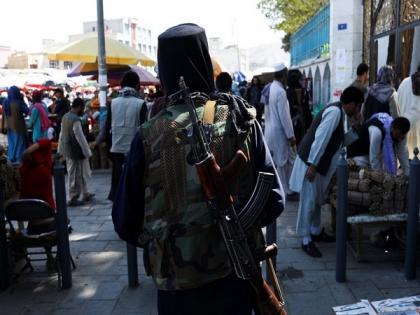Ethnic fissures between Taliban may become source of instability in Afghanistan: Report
By ANI | Published: February 2, 2022 11:25 PM2022-02-02T23:25:00+5:302022-02-02T23:35:02+5:30
As serious dissensions are ripping through the Taliban over ethnic issues, several reports say that if the divisons continue to deepen in the near future, they may potentially become a source of instability in Afghanistan.

Ethnic fissures between Taliban may become source of instability in Afghanistan: Report
As serious dissensions are ripping through the Taliban over ethnic issues, several reports say that if the divisions continue to deepen in the near future, they may potentially become a source of instability in Afghanistan.
In its report, Al Arabiya said, various reports have underlined widening rift between numerically superior Kandaharis (Loya Kandahar) and Pak-controlled Haqqanis (Loya Paktiya).
"This division is clear between the Mullah Baradar-led group and that of Interior Minister and leader of the Haqqani Network (HQN) Sirajuddin Haqqani over the latter's overt pro-Pashtun stance. It is feared that these differences could lead to depletion in Taliban ranks, particularly in provinces dominated by non-Pashtun ethnic groups," the report said.
The report further stated that it is widely known that the swift Taliban takeover of Afghanistan was made possible without the help of non-Pashtun cadres under its banner. Five months down the line, the non-Pashtuns are becoming restless at the overt Pashtun preference shown by the ruling Taliban.
The growing disgruntlement among the minority partners of the Taliban is acutely visible in the Northern provinces, dominated by non-Pashtun ethnic groups, the reprot noted.
"Reports from the provinces indicate sporadic incidents of Tajik and Uzbek Taliban fighters attempting to disarm Pashtun cadres, while accusing them of having links with global terrorist group Da'esh operating out of Afghanistan," Al Arabiya reported.
It further reported that the tensions between the Pashtun and non-Pashtun Taliban, particularly in the Northern provinces, were apparent in street protests in January that shook Maimanah City of Faryab following the arrest of senior Uzbek Taliban Commander Makhdoom Alam Rabbani (known to have influence in Faryab, Jowzjan, Sar-e-Pul and Samangan provinces).
"So far, it appears that the Taliban regime has managed to quell the brewing dissent with a heavy hand. Although there has not been open violence, a sense of betrayal amongst non-Pashtun locals in the north remains like a burning ember. Such ethnic fissures could be exploited by the nascent resistance led by Ahmad Massoud to challenge the Taliban regime in Kabul," the report stated.
Since the regime has so far been unable to tackle the intra-Pashtun power struggle, the brewing dissent among the non-Pashtuns could further undermine its stranglehold and influence, Al Arabiya reported.
If the ethnic fissures deepen in the near future, they may potentially become a source of fragmentation and instability in Afghanistan, a threat that could further weaken the Taliban regime, still struggling to consolidate its hold, the report added.
( With inputs from ANI )
Disclaimer: This post has been auto-published from an agency feed without any modifications to the text and has not been reviewed by an editor
Open in app